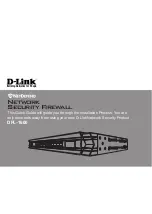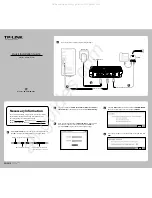
5. M!DGE3 in detail
5.1. Combination of IP and serial communication
M!DGE3 enables combination of IP and serial protocols within a single application.
Five independent terminal servers are available in M!DGE3. Terminal server is a virtual substitute for
devices used as serial-to-TCP(UDP) converters. It encapsulates serial protocol to TCP(UDP) and vice
versa eliminating the transfer of
TCP overhead
over the radio channel.
If the data structure of a packet is identical for IP and serial protocols, the terminal server can serve as
a converter between TCP(UDP)/IP and serial protocols (RS232, RS485).
You
can
see
an
instructional
video
explaining
the
Terminal
server
functionality
here:
https://www.racom.eu/ripex-terminal
5.1.1. Detailed Description
Generally, a Terminal server (also referred to as Serial server) enables connection of devices with a
serial interface to a M!DGE3 over the local area network (LAN). It is a virtual substitute for the devices
used as serial-to-TCP(UDP) converters.
Examples of the use:
A SCADA application in the center should be connected to the radio network via serial interface, however,
for some reason that serial interface is not used. The operating system (e.g. Windows) can provide a
virtual serial interface to such application and converts the serial data to TCP (UDP) datagrams, which
are then received by the terminal server in M!DGE3. This type of connection between M!DGE3 SCADA
and application is beneficial in the following circumstances:
• There is no hardware serial interface on the computer
• Serial cable between M!DGE3 and computer would be too long. E.g. the M!DGE3 is installed very
close to the antenna to reduce feed line loss.
• LAN already exists between the computer and the point of installation
In special cases, the Terminal server can reduce network load from TCP applications. A TCP session
can be terminated locally at the Terminal server in M!DGE3. User data are extracted from the TCP
messages and processed as if it came from a COM port. When the data reaches the destination
M!DGE3, it can be transferred to the RTU either via the serial interface or via TCP (UDP), using the
Terminal server again. Please note, that M!DGE3 Terminal server implementation also supports the
dynamical IP port change in every incoming application datagram. In such a case the M!DGE3 sends
the reply to the port from which the last response has been received. This feature allows to extend the
number of simultaneously opened TCP connections between the M!DGE3 and the locally connected
application up to 10 on each Terminal server.
M!DGE3 Cellular Router – © RACOM s.r.o.
32
M!DGE3 in detail
















































